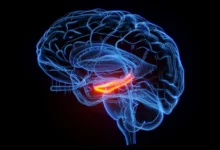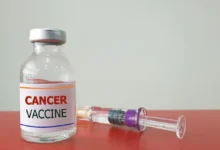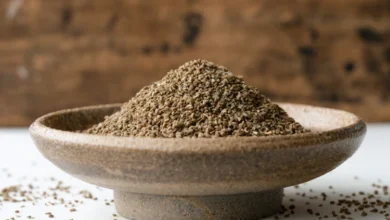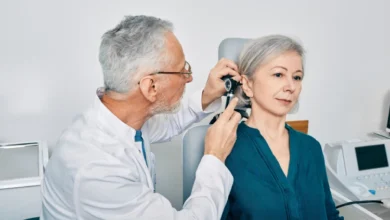Researchers Uncover Diet’s Role in Rising Colon Cancer Rates Among Young Adults
Diet Linked to Surge in Colon Cancer Among Young Adults, Study Reveals

A team of scientists exploring the alarming increase in colon cancer diagnoses among young adults has made significant discoveries regarding the impact of diet on health.
An international review examining global dietary patterns revealed that those consuming a Western diet, characterized by high fat and sugar intake, face an increased risk of colorectal cancer and Inflammatory Bowel Disease (IBD).
Published in the journal Nature Reviews Microbiology, the study analyzed how diet affects the gut microbiome – the community of microorganisms in our intestines – and how changes in its composition influence overall health.
“Our review highlights the profound impact of different diets on the gut microbiome,” stated lead author Prof. Catherine Stanton. “This understanding is crucial for developing dietary recommendations that promote health and prevent disease. It’s fascinating to see how dietary choices can influence the balance of microorganisms in our gut and their metabolic functions.”
The research compared six prevalent diets – Mediterranean, high-fiber, plant-based, high-protein, ketogenic, and Western – to determine their effects on gut bacteria associated with intestinal disorders.
Findings indicate that a Western diet rich in processed foods, red meat, sugary beverages, and high-fat products poses the highest risk. Conversely, a Mediterranean diet high in fruits and vegetables has the lowest risk and helps manage conditions like cardiovascular disease, IBD, and type 2 diabetes.
The study suggests that healthcare professionals could use these insights to develop targeted nutritional therapies to improve public health outcomes.
“This review is a significant milestone in microbiome research,” said Prof. Paul Ross, Director of APC Microbiome Ireland. “It provides a detailed look at how dietary patterns shape the gut microbiome and underscores the potential for diet-based interventions in clinical practice. It provides tangible data on how the microbiome is intrinsically relevant to creating health benefits for society.”
Research shows that while some cancers are declining in older adults, cancer is increasingly being diagnosed in younger individuals, often before the age of 50. A recent study found that early-onset cancer cases “increased substantially” from 2010 to 2019, with breast cancer being the most common and gastrointestinal cancers growing the fastest.
Early-onset cancers, diagnosed in adults aged 18 to 49, tend to be more aggressive and less responsive to treatment.
The American Cancer Society reports that colorectal cancer is the leading cause of cancer deaths in men under 50 and the second leading cause of death in women under 50, following breast cancer. In early 2023, it was reported that 20% of colorectal cancer diagnoses in 2019 were in patients under 55, nearly double the rate in 1995, with advanced disease rates increasing by about 3% annually in people younger than 50.
Researchers find the increase in cases concerning, particularly because individuals in this age group are often too young for recommended routine cancer screenings, leading to delayed diagnoses and more advanced, harder-to-treat cancer.
“There is often a delay between the onset of symptoms and the actual diagnostic procedure to find the cancer,” said Jeremy Kortmansky, a Yale Medicine medical oncologist specializing in gastrointestinal cancers. “Some of that may be driven by patients who think, ‘I’m only 40—it’s probably not cancer, right?’ Other times, a physician may think rectal bleeding in a young patient is just a sign of hemorrhoids, so it’s important to advocate for yourself.”
The reasons behind the vulnerability of younger people to cancer diagnoses remain unclear, though several risk factors have been suggested.
Some research points to the increasing incidence of obesity, changes in environmental exposures like smoke and gasoline, sleep patterns, physical activity, microbiota, and transient exposure to carcinogenic compounds as potential contributors.
According to the American Cancer Society, nearly 1 in 5 cancers is linked to excess body weight, alcohol consumption, unhealthy diet, and physical inactivity.
- Nature Reviews Microbiology. (2024). Impact of Dietary Patterns on the Gut Microbiome. Nature. doi:10.1038/s41579-024-01068-4.
- APC Microbiome Ireland. (2024). Western Diets Pose Greater Risk of Cancer and IBD. University College Cork. Retrieved from https://www.ucc.ie/en/apc/news/apc-news/apc-study-finds-western-diets-pose-greater-risk-of-cancer-and-ibd.html
- Yale Medicine. (2024). Early-Onset Cancer in Younger People on the Rise. Yale Medicine. Retrieved from https://www.yalemedicine.org/news/early-onset-cancer-in-younger-people-on-the-rise
- JAMA Network. (2024). Incidence of Early-Onset Cancer in Younger Adults. JAMA Network Open. doi:10.1001/jamanetworkopen.2024.8381.








